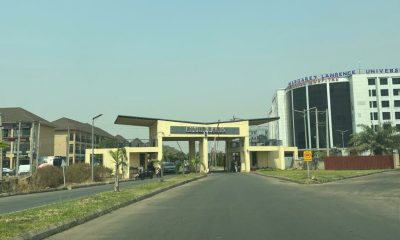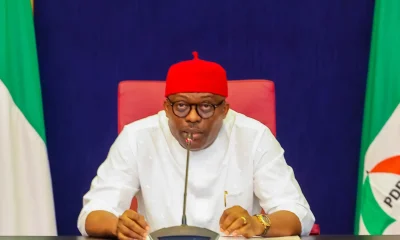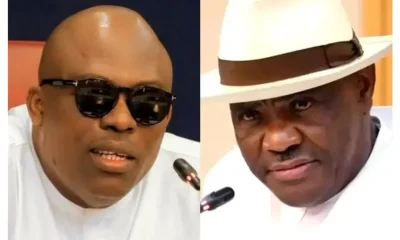NEWS
Rivers Assembly Resumes Plenary as Fubara’s Feud Looms

The Rivers State House of Assembly, led by Speaker Martins Amaewhule, is set to resume its post-emergency plenary on Thursday, signaling a cautious return to democratic governance after a six-month hiatus. The move follows the suspension of the state of emergency, which was imposed by President Bola Tinubu in March to halt the political crisis that had crippled the state. While the resumption is seen as a positive step towards normalcy, it also re-ignites a long-simmering political feud between the lawmakers and Governor Siminalayi Fubara, raising concerns about the fragility of the peace deal brokered by the Presidency.
The plenary will be held at the Conference Hall within the legislative quarters in Port Harcourt. This temporary meeting area has been the lawmakers’ home since their official chamber at the House of Assembly complex was demolished. The destruction of the assembly complex was a key event in the political conflict that led to the emergency rule. The state government, under Governor Fubara, ordered the demolition, citing structural issues and claiming that a new, modern complex was already being built to replace it. The move was widely criticized at the time as a politically motivated act aimed at frustrating the Amaewhule-led faction of lawmakers, who are loyal to FCT Minister and former Governor Nyesom Wike. The fact that the lawmakers must now convene in a temporary space serves as a tangible reminder of the political violence and turmoil that brought the state to a standstill.
The lifting of the emergency rule on Wednesday, September 17, 2025, by President Tinubu, effectively reinstated Governor Fubara, his Deputy Governor, and the lawmakers to their full constitutional powers. The emergency rule had suspended all elected officials and placed the state under a Sole Administrator, a drastic measure taken by the Presidency to restore order and governance. The Supreme Court had previously noted that due to the political impasse, there was “no government in Rivers State,” an observation that President Tinubu referenced in his address to the nation when he declared the state of emergency. With the expiration of the six-month emergency rule, the return of the elected officials is a crucial step towards the restoration of constitutional democracy, but it also brings the old adversaries back into a shared political arena.
The primary agenda for the resumed plenary is the presentation and passage of the state budget, a key issue that was at the heart of the political crisis. The Amaewhule-led House has, in previous court judgments, been recognized as the legitimate Rivers State House of Assembly, a ruling that requires the Governor to re-present the budget to them for approval. This legislative necessity will be the first major test of the so-called peace deal brokered by the President. Observers and political analysts will be watching closely to see if the Governor and the Speaker’s faction can work together to pass the budget, or if the old animosities will resurface and plunge the state back into a constitutional crisis. The ability of both sides to put the interest of the state ahead of their political differences will be a true measure of the effectiveness of the President’s intervention.
The resumption of legislative business is a positive development for the people of Rivers State, who have endured months of political uncertainty. However, the underlying power struggle between Governor Fubara and the faction of lawmakers loyal to Minister Wike remains unresolved. The lawmakers’ return to their duties, led by Speaker Amaewhule, signals that the pro-Wike camp remains a formidable force in the state’s political landscape. As the lawmakers convene in their temporary chambers, the fate of the state hinges on their ability to work with the Governor for the collective interest of the people. The people of Rivers are hoping that this new chapter will be marked by stability, progress, and a renewed focus on governance, rather than a return to the political turmoil that has become all too familiar.












